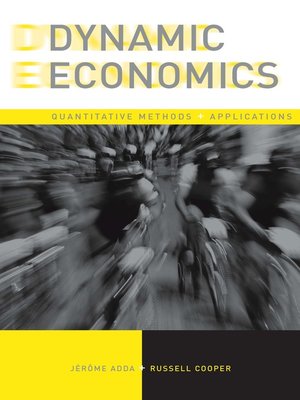
Sign up to save your library
With an OverDrive account, you can save your favorite libraries for at-a-glance information about availability. Find out more about OverDrive accounts.
Find this title in Libby, the library reading app by OverDrive.



Search for a digital library with this title
Title found at these libraries:
| Library Name | Distance |
|---|---|
| Loading... |
An integrated approach to the empirical application of dynamic optimization programming models, for students and researchers.
This book is an effective, concise text for students and researchers that combines the tools of dynamic programming with numerical techniques and simulation-based econometric methods. Doing so, it bridges the traditional gap between theoretical and empirical research and offers an integrated framework for studying applied problems in macroeconomics and microeconomics.
In part I the authors first review the formal theory of dynamic optimization; they then present the numerical tools and econometric techniques necessary to evaluate the theoretical models. In language accessible to a reader with a limited background in econometrics, they explain most of the methods used in applied dynamic research today, from the estimation of probability in a coin flip to a complicated nonlinear stochastic structural model. These econometric techniques provide the final link between the dynamic programming problem and data. Part II is devoted to the application of dynamic programming to specific areas of applied economics, including the study of business cycles, consumption, and investment behavior. In each instance the authors present the specific optimization problem as a dynamic programming problem, characterize the optimal policy functions, estimate the parameters, and use models for policy evaluation.
The original contribution of Dynamic Economics: Quantitative Methods and Applications lies in the integrated approach to the empirical application of dynamic optimization programming models. This integration shows that empirical applications actually complement the underlying theory of optimization, while dynamic programming problems provide needed structure for estimation and policy evaluation.







